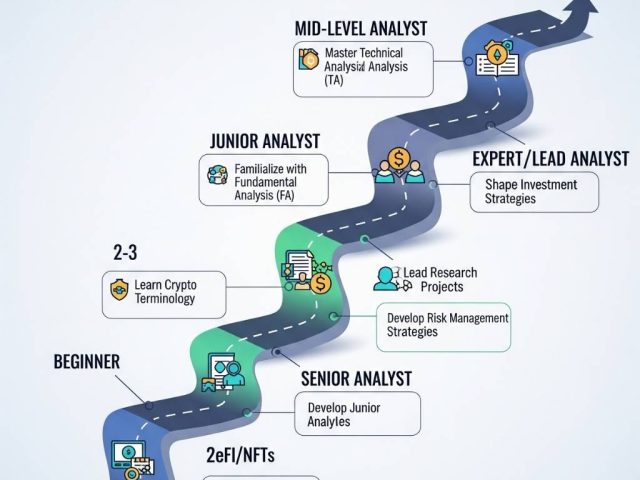Introduction: A High-Stakes Game in the Digital Wild West
Crypto derivatives are financial instruments that derive their value from the price of underlying cryptocurrencies. These complex products have gained significant traction in recent years, offering investors a wide range of opportunities to speculate on the price of cryptocurrencies without directly owning them.
The history of crypto derivatives is relatively short but marked by rapid growth and innovation. Bitcoin futures, launched in 2017, were a pivotal moment that introduced traditional financial markets to the world of cryptocurrencies. Since then, the market for crypto derivatives has expanded to include a variety of products, such as options, swaps, and perpetual contracts.
The Current Landscape: A Booming Market with Growing Pains
The crypto derivatives market has experienced explosive growth in recent years, driven by factors such as increasing institutional interest, technological advancements, and the rise of decentralized finance (DeFi). The market size has surged, attracting a diverse range of participants, from individual investors to large financial institutions.
DeFi has played a crucial role in the development of crypto derivatives. Decentralized exchanges and protocols have enabled the creation of innovative products that offer enhanced flexibility, transparency, and accessibility. DeFi derivatives have gained popularity due to their ability to bypass traditional financial intermediaries, reducing costs and increasing efficiency.
Crypto derivatives offer several advantages for investors. They provide leverage, allowing investors to amplify their potential returns (or losses) on a smaller investment. They also enable hedging, which can help mitigate risks associated with holding cryptocurrencies directly. Additionally, derivatives can be used for speculation, allowing investors to profit from price movements without taking ownership of the underlying asset.
Risk Management and Hedging
While crypto derivatives offer numerous opportunities, they also come with significant risks. Price speculation can lead to substantial losses if market movements go against the investor’s expectations. Leverage can amplify both gains and losses, making it crucial to manage risk effectively.
Hedging is a strategy that can help mitigate risks associated with holding cryptocurrencies. By using derivatives to offset potential losses, investors can protect their portfolios from adverse price movements. Hedging can be particularly valuable in volatile markets, where prices can fluctuate rapidly.
Challenges and Risks: The Wild Frontier Has Thorns
Despite the growth and potential of the crypto derivatives market, it faces several challenges and risks. Regulatory uncertainty remains a significant concern, as governments grapple with how to regulate these complex financial instruments. Lack of clear regulatory frameworks can create legal ambiguity and hinder market development.
Security risks are another major challenge. Crypto exchanges and wallets have been targeted by hackers, leading to significant losses. Protecting customer funds and ensuring the integrity of trading platforms is a top priority for industry players.
Market volatility is a constant feature of the crypto derivatives market. Prices can fluctuate rapidly, making it difficult for investors to predict future movements. Price manipulation and pump-and-dump schemes have also been observed, posing risks to market integrity.
The Road Ahead: Innovation and Regulation
The future of crypto derivatives is likely to be shaped by a combination of innovation and regulation. As technology continues to evolve, we can expect to see the emergence of new products and services that cater to the needs of investors. Decentralized derivatives are expected to play a significant role in the future, offering enhanced transparency, efficiency, and accessibility.
Regulatory clarity is essential for the long-term growth and sustainability of the crypto derivatives market. Governments and regulators are working to develop frameworks that balance innovation with consumer protection and market integrity. International cooperation will also be crucial in establishing consistent standards and preventing regulatory arbitrage.
The Impact of CBDCs (Central Bank Digital Currencies)
Central bank digital currencies (CBDCs) have the potential to disrupt the traditional financial system and impact the crypto derivatives market. CBDCs could provide a more efficient and accessible alternative to traditional fiat currencies, potentially reducing demand for cryptocurrencies and their derivatives. However, the integration of CBDCs into the existing financial infrastructure will require careful consideration and coordination.
Investing in Crypto Derivatives: A Guide for the Cautious Adventurer
Investing in crypto derivatives involves significant risks and requires careful consideration. Understanding your risk tolerance is crucial before making any investment decisions. It’s essential to assess your financial goals, time horizon, and willingness to accept risk.
Choosing a reputable exchange is another important factor. Look for exchanges with a strong track record, robust security measures, and a wide range of products. Starting small and diversifying your portfolio can help manage risk and reduce exposure to any single asset.
Conclusion: The Future is Uncertain, But Full of Potential
The future of crypto derivatives is uncertain, but the potential for growth and innovation is significant. As the market matures and regulatory frameworks evolve, we can expect to see a more stable and accessible environment for investors.
While the risks associated with crypto derivatives are substantial, they also offer unique opportunities for those willing to navigate the challenges. By understanding the market dynamics, managing risks effectively, and staying informed about regulatory developments, investors can position themselves to capitalize on the potential rewards.
FAQs
1. What are the benefits of using crypto derivatives?
Crypto derivatives offer several advantages, including:
- Leverage: They allow investors to amplify their potential returns (or losses) on a smaller investment.
- Hedging: They can be used to mitigate risks associated with holding cryptocurrencies directly.
- Speculation: They enable investors to profit from price movements without taking ownership of the underlying asset.
- Exposure to a wider range of investment opportunities: Crypto derivatives provide access to a variety of financial instruments based on different cryptocurrencies.
2. What are the risks involved in trading crypto derivatives?
Trading crypto derivatives involves significant risks, such as:
- Price volatility: Cryptocurrencies are known for their price fluctuations, which can lead to substantial losses.
- Market manipulation: Pump-and-dump schemes and other manipulative practices can affect prices.
- Regulatory uncertainty: The lack of clear regulatory frameworks can create legal ambiguity and hinder market development.
- Security risks: Crypto exchanges and wallets have been targeted by hackers, posing risks to customer funds.
3. How do I get started with crypto derivatives trading?
To get started with crypto derivatives trading, you should:
- Choose a reputable exchange: Look for exchanges with a strong track record, robust security measures, and a wide range of products.
- Understand your risk tolerance: Assess your financial goals, time horizon, and willingness to accept risk.
- Start small and diversify: Begin with a smaller investment and diversify your portfolio to manage risk.
- Learn about different products: Familiarize yourself with various crypto derivatives, such as futures, options, and swaps.
4. What is the future of the crypto derivatives market?
The future of the crypto derivatives market is likely to be shaped by a combination of innovation and regulation. As technology continues to evolve, we can expect to see the emergence of new products and services. Regulatory clarity is essential for the long-term growth and sustainability of the market.
5. Are crypto derivatives a good investment?
Crypto derivatives can be a good investment for those who understand the risks and are willing to navigate the challenges. However, individual circumstances and risk tolerance should be carefully considered. It’s important to do your own research and consult with a financial advisor before making any investment decisions.





